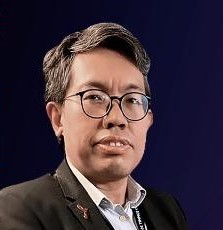OPINION
There’s a video currently making the rounds on the Internet. It shows a recent public event held in a Kuala Lumpur mall to commemorate World AIDS Day. A panel of speakers are on a stage discussing the state of HIV in the country. The clip is dominated by the monologue of a person who calls herself a motivational speaker and family counselling specialist.
The shrill and strident tones, the disparaging and heartless words of judgement, and the blatant misuse of religious rhetoric to justify discrimination and bigotry, make viewing the video difficult. Especially those parts where she appears to be gleeful in the suffering and hardship of others.
It is painful to hear. But it is even more painful to realise that despite decades of work and effort in improving awareness and knowledge, changing minds and attitudes towards people living with HIV and the communities affected by it, dealing with stigma and discrimination remains a major challenge in Malaysia.
1st of December is World AIDS Day. It has been 31 years since the first AIDS case was diagnosed in this country. More than 100,000 people were reported to have acquired HIV since then.
Around 3 200 persons are newly infected annually. While most are men, there are increasingly more women. Out of 9 new HIV infections recorded daily, 6 of them are due to unprotected sex. Sexual transmission today drives the Malaysian HIV epidemic, overtaking injecting drug use.
We have come a long way from those days when a person getting diagnosed with HIV could only dream about getting treated, and had little or no access to care and support. Today, anyone living with HIV in Malaysia is able to access treatment for free or at low cost. HIV is now a chronic, but manageable illness. We can take enormous pride in these achievements.
Which is why this incident at the mall is particularly sakit hati. Some people still don’t get it.
Today, we face the everyday reality of more people among us who are living with HIV, vulnerable or at increased risk.
Consider the single mother who has six kids to feed, school and house. The transwoman who has been told, that her kind are reviled in the sight of God and that before receiving assistance, she must bertaubat (repent).
The sex worker who is turned away from the welfare assistance office for not having an identification card. The homeless person whose last address was “under the bridge near Central Market.” The person living with HIV who has been deprived of employment, house and home.
They are our grandparents, parents, sons and daughters, brothers and sisters, friends, colleagues and strangers.
Now, more than ever, compassion, not hate and discrimination, is absolutely necessary in dealing with the many challenges we face as a society.
Let me be frank.
Those at risk, vulnerable or living with HIV need less of our ceramahs, dogma and religious rhetoric. It is self-indulgent. Talk is the privilege of those whose bellies are full, have jobs, roofs over their heads, drive nice cars and don’t wonder where their next meal or RM10 is going to come from. There are so many who need help to survive and live.
In this, the non-Muslim charity and welfare organisations in Malaysia have done a much better job compared to their Muslim counterparts. To the latter, I would ask that you take a leaf out of our non-Muslim brethren, particularly the Christian and Buddhist communities. Be non-judgemental, don’t be prejudiced, open your hearts and doors to everyone. Most importantly, make yourselves open to learn.
There is much that we can do better. Instead of focusing our energies on condemning and preaching to people and communities, we need to reflect on the gaps and shortcomings which have driven away or ostracised our own communities.
With the hundreds of millions collected annually in zakat contributions, surely there is enough to help those who are poor and in need?
Don’t sit in your comfortable air conditioned offices in faraway locations expecting the poor and destitute to come to you. Don’t force them to spend time and money which they don’t have to go to you.
So many have their noses pressed against the windows of welfare offices. And when they desperately in need of these services, they can’t get in. Don’t burden them with numerous documentation and religious requirements to prove that they are layak menerima bantuan (fit to receive assistance). Don’t operate only during government office hours.
If your sincere intent and amanah are to help and assist the poor and in need, seek them out and you will definitely find them. The need is great, especially in these trying times.
On this World AIDS Day, we need to continue fighting for every person who needs our help today but also in memory of those who are no longer with us. As demonstrated by this recent incident, we must also uphold their dignity by calling out acts of stigma and discrimination as we see it..
We can’t let them down.


